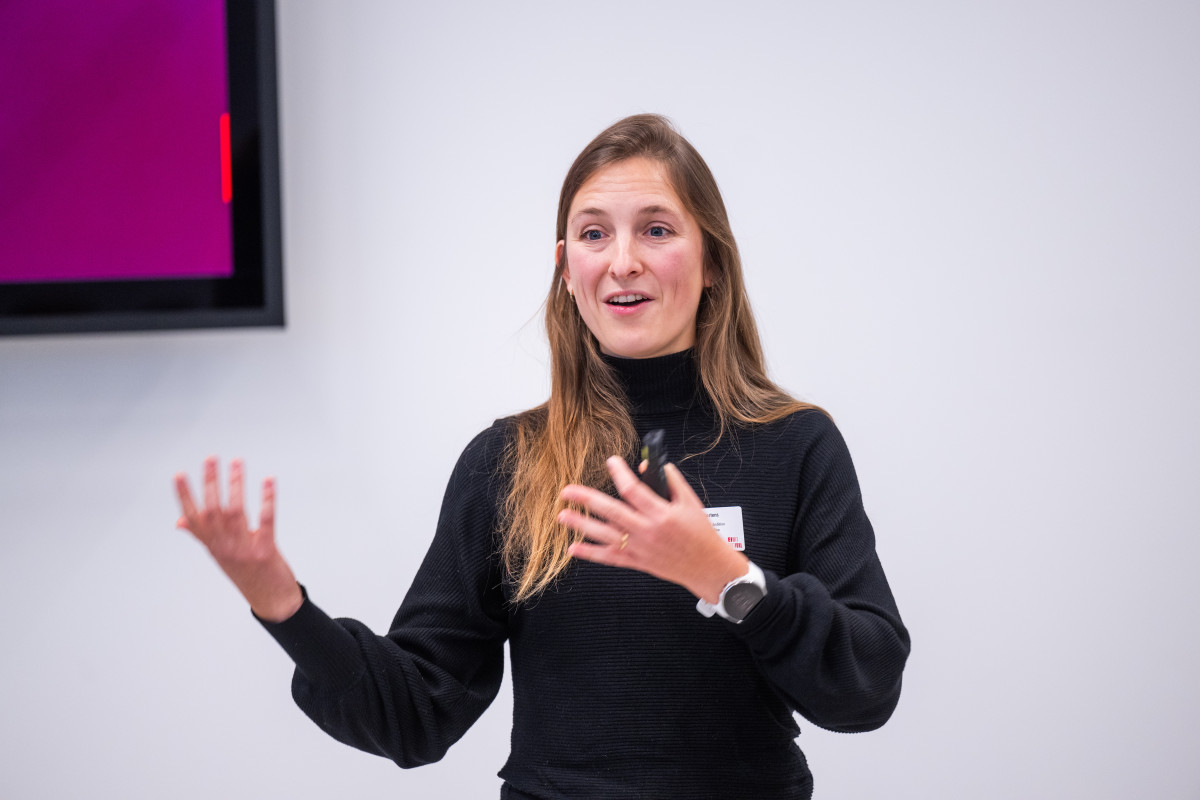
From Consulting to Food Transition: My Journey with Madre Brava
After beginning her career as a management consultant, Katrien Martens decided to take a different path and took up a ‘Fellowship’ with The School for Moral Ambition. Having finished her placement with Madre Brava, she reflects on efforts in Europe to move to a healthier, more sustainable, more affordable food system for all.
"Is working on the food transition really so impactful?"
"Isn't policy, especially EU policy, a black box, far removed from reality?"
“Can one person, or one organisation, make an actual and significant difference?”
These questions have been on my mind since I pivoted my career last September. Let me take you through how I've answered them during my career-changing fellowship, transitioning from the private sector to the food space.
On a path to purpose
I’m Katrien, a cheerful but determined farmer’s granddaughter who grew up in rural Limburg, Belgium. After high school, I studied Bioscience Engineering at the University of Leuven, where I nurtured and continued to develop my passion for nature, food, chemical and biological sciences, and above all, problem-solving.
Although some may have thought I would follow a different path after graduation, I ended up entering the world of management consulting, specifically global consulting firm Accenture, where I thrived for seven years.
While consulting offered excitement, pace, and professional growth, my heart was increasingly drawn to sustainability and projects of more purpose. Originally I was trying to embed that purpose in my consulting projects, but then the School for Moral Ambition crossed my path. Intrigued by the idea that making a bold career move would drastically improve my ability to make the world a better place, I left the perfect job on paper and joined the Food Transition Fellowship.
With the School for Moral Ambition, and allocated to host organisation Madre Brava, I’ve been focusing in the past seven months on sustainable food systems in Europe. This journey has been nothing short of transformative. Initially I was overwhelmed by questions, but through the meaningful projects I contributed to I've come to appreciate the profound impact the food sector can have.
Is working on the food transition really so impactful?
The answer to this question came to me rather quickly in my fellowship journey. After getting confronted with the numbers in my training weeks, and after confirming part of that research myself within an NGO coalition calling on the EU for an action plan on plant-based foods, I realised how working on our food system, especially protein production and consumption, is such a meaningful pursuit:
- Around 1/4th of all EU emissions come from the production of animal-based foods
- An estimated 1.5 million of healthy life years are lost due to inadequate legume, nut and seed consumption
- Europe is highly dependent on protein imports: e.g. 94% of soy protein we feed to our farmed animals must be imported from outside the EU
- Farmers earn on average 40% less than the average EU income
- Food production is the number one contributor to biodiversity loss
- More than 7 billion animals are killed for food every year
Improving our food system could dramatically benefit our economy, food security, and environment. If we could enhance the system even slightly, the impact would be monumental for Europe’s economy, people, planet, and animals. It's like moving a stone that could change the course of a river, and the potential to drive change in these areas makes working on food transition incredibly rewarding.

Is EU policy a black box, far removed from reality?
I've closely followed EU politics during a pivotal time—new elections, commissioners, and visions for the future. In the light of a EU policy study I conducted, I spoke with "dinosaurs" in the EU food policy sphere, analysed lengthy EU publications and identified feasible strategies to continue to improving our food system in the coming years. I also experienced EU policy from even closer, within the 2 coalition projects I took an active part in.
One of my first realisations was how vast the impact of European policy is on our daily lives. With about a third of the total EU budget going to agriculture and food, the EU indirectly steers what we grow and eat as Europeans. At the same time EU politics are complex, but the functioning democracy and the willingness of some policymakers to listen have given me hope. Even if NGO voices can be overshadowed by corporate lobbyists, I've witnessed many in the commission, parliament, and council willing to engage in meaningful dialogue.
The "Brussels Bubble," as it's often called, can seem daunting, but my experience suggests that persistence and collaboration can lead to real influence. Our European democracy, while imperfect, is something we should cherish, and keep viewing as a huge lever for change.

Can one individual or organisation make an actual difference?
I must admit, I've felt small in this vast world, questioning the impact of one person or organisation. However, throughout this program I've realized that few people are truly dedicated to advancing EU food policy for societal benefit. The ratio of NGOs to corporate lobbyists is stark, highlighting the unique potential for committed individuals to make a difference. I've seen how small actions can snowball into significant change.
One of my projects for instance, began with a conversation with a few health organisations, and led to 20+ European health organizations advocating for plant-rich diets and eventually to health associations being invited onto the European Board for Agriculture and Food, advising the EU commission in the coming years.
Madre Brava started approaching supermarkets on the link between their food assortments and their climate agenda, and now witnesses multiple European supermarkets committing to shift their protein balance to a more plant-based and less animal-based ratio.
A co-fellow at the School for Moral ambition started with a few farmer visits and ended up with 80+ organisations, farmers and companies publishing a call to the EU Commission for protein diversification.
Although causality is sometimes hard to prove and results didn’t translate yet to policy or regulatory changes, they demonstrate how one domino can set a larger movement in motion. The collective effort of passionate individuals and organisations can tip the scales. Every meeting, every conversation, and every small victory contributes to a greater cause. In this context, the power of one becomes the power of many.
From reflection to action
Dedicating one’s career to a better food system is truly worthwhile and I haven’t regretted my move for a second. The EU, despite its complexity, is a powerful lever for change. Every organisation and every individual can make a difference, especially when focusing on those initiatives that unite rather than divide, foster collaboration instead of conflict, and prioritise partnership over polarisation.
I’m sincerely grateful for my move into this field and deeply admire Madre Brava for their commitment and support. This journey has reaffirmed my belief that together, we can change the course of this wild river. Let’s work on solutions that benefit the planet, animals and society at large and are practical for all involved. We've talked enough—now it's time for action.



